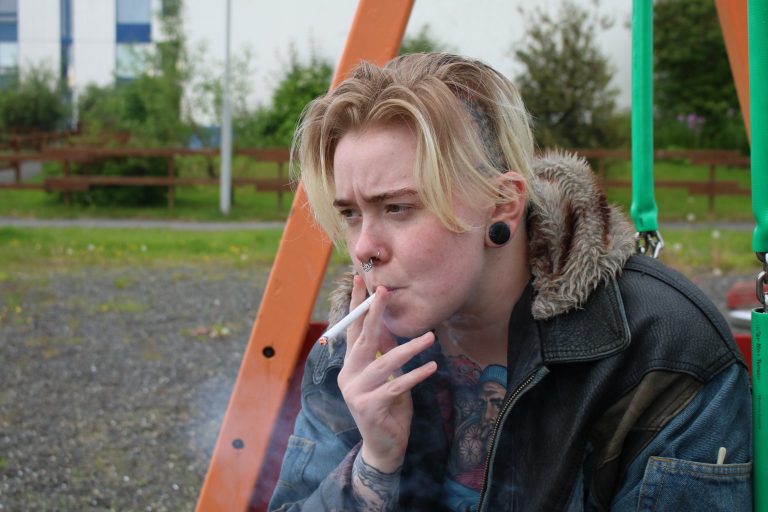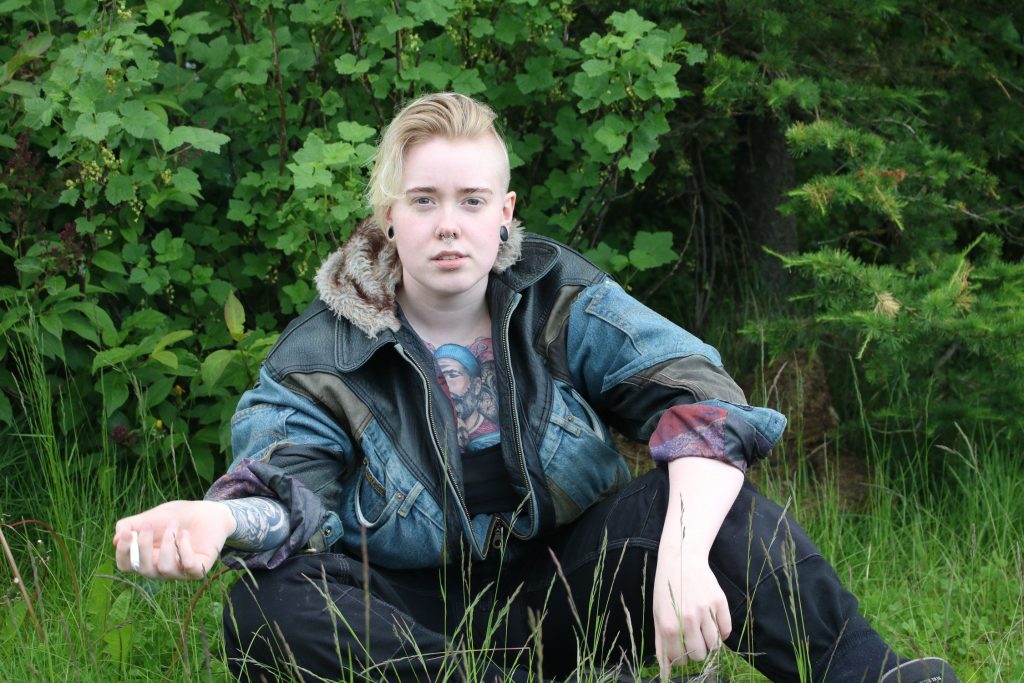Kristín Jóhanns recently came out as a butch lesbian and explains to GayIceand what that means to her and the journey that she has been on with her identity.
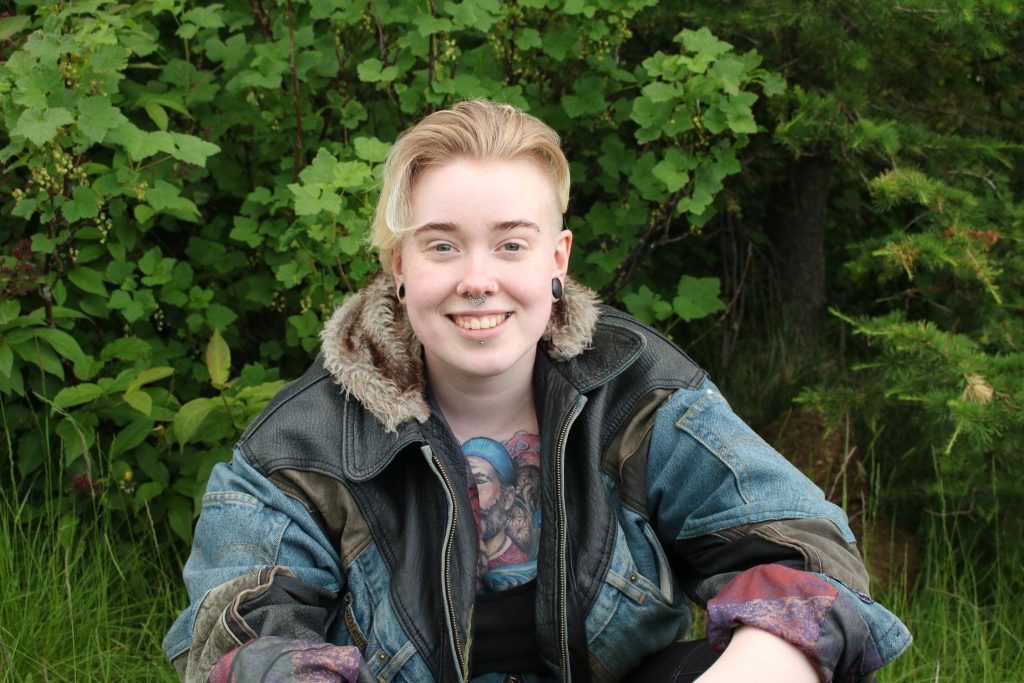
The butch/femme dichotomy (or dyke-chotomy, sorry not sorry) has long been pervasive within the culture of lesbians and queer women. However, ‘butch’ lesbians or those women displaying more masculine characteristics have been demonized and ridiculed in society and the media. This is partly because early butches were seen as ‘gender traitors’, for not looking or acting in a way that was appropriate for a woman to act. Since then, butch identity has become something to be proud of but is often associated with older queer women. However, there are a few young people working to revive the label they feel comfortable using. GayIceland’s Yaz Duncan speaks to Kristín Jóhanns who has recently come out as a proud butch lesbian.
Firstly well done on coming out, what has your experience of that been?
“Thank you, I have received nothing but love from my friends and family and within the community. Coming out is one of the best things I‘ve done for myself, it allowed me to become the person I am today and I am much happier for it.”
“I will never forget the day I heard the word ‘trukkalessa’ (truck dyke) for the first time. It was a negative, offensive phrase and was aimed towards me because of my man-ish attire.”
You’ve recently come out as a ‘Butch Lesbian’ – why do you feel most comfortable using that label?
“It‘s only recently that I‘ve begun using that label to describe my sense of self and my sexuality. It‘s healthy to question yourself and it‘s healthy to doubt yourself and your upbringing, it means you are free to go through phases while you find out who you are. When I was a teenager I thought for a long time I was a trans man. My attraction to the same sex along with my ‘tomboyish’ nature, and a serious case of feeling uncomfortable in my own body made me come to this idea and for a while, I entertained it. I made friends with other trans men and got a lot of support from Samtökin 78 ( The National Queer Association of Iceland). I learned a lot about the trans community and gender roles and I was allowed the space to be myself.
After a while, I realised I was relying on stereotypes to shape my ideas about myself and my body dysmorphia was a result of an eating disorder I had developed during my preteen years. It took years to work through that, but my relationship with my body and the way I view myself got better and my gender identity became much clearer to me. I felt empowered knowing that I didn‘t owe the world femininity despite being a woman.”
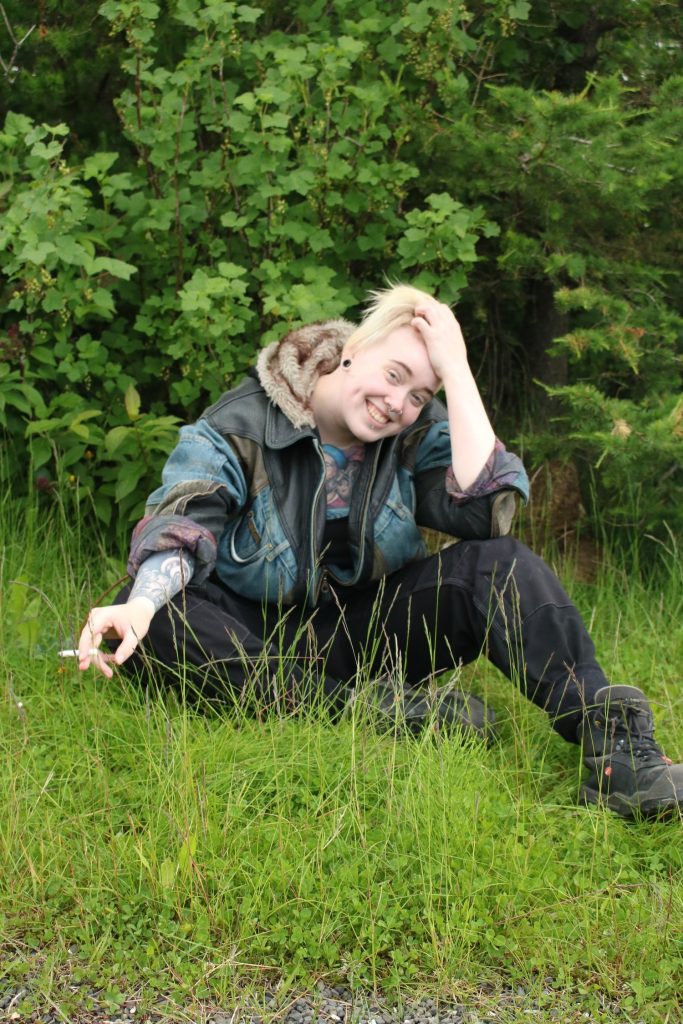 What does being butch mean to you?
What does being butch mean to you?
“It describes a woman attracted to other women who displays traditionally masculine qualities and it felt right to use it to describe me. We are very lucky to be able to experiment with our language and allow it to evolve with the times. Our natural instinct to create means we create words to describe our experiences. For example, Awumbuk is a word to describe the feeling of emptiness after visitors leave. Meliorism is a word that describes the feeling that the world will get better. Hygge is a word that means a sense of place, family, and contentment. Gråtrunka means crying and masturbating at the same time. It‘s amazing. It‘s the same with sexuality and gender presentation. When you hear people complain about how ‘everything exists nowadays’, remind them to not forget that the human experience is complicated and we like to sort stuff into tiny dictionaries simply because we are weirdos who like to document stuff.
But whether or not one prefers to use labels, it can‘t be denied that it feels good to feel like you have a community behind you and that you‘re not alone in your experiences. It‘s a human thing. That‘s what labels mean to me.”
How do you feel ‘butch lesbians’ are viewed in Iceland, by the LGBTQ+ community, and by wider society?
“I feel like this is not a common term to use in Iceland and even if it is I feel like it‘s mostly unspoken.
I will never forget the day I heard the word ‘trukkalessa’ (truck dyke) for the first time. It was a negative, offensive phrase and was aimed towards me because of my man-ish attire. Then I heard it again and again, not only to describe me but to describe women who did the littlest things; gained weight, wore baggy clothes with no makeup, laughed loudly and heartily or liked to fight.
“Even though I see myself as a masculine woman I am still aware of all of my feminine traits. I am very sensitive and I cry a lot.”
I have a secret wish that we as a community could reclaim that word so that masculine women, whether they are lesbians or not, don‘t have it thrown in their face on daily basis for showing non-feminine traits. And honestly, truck dyke sounds metal as hell. Like a Mad Max sorta thing.”
Why do you think it is unusual for young queer women to identify as butch lesbians in Iceland today?
“I personally think young queer women have a much wider variety of labels to explore and it‘s wonderful. The butch label could be classified as old school since it relies on traits that are traditionally masculine and feminine. Young people today are challenging those traits and exploring beyond them and it‘s amazing.”
What negative stereotypes do you think exist around butch women?
“That they‘re man-ish and perverted. That they‘re predatory and aggressive. You take all the qualities you don‘t like about cis men and you apply them to a woman and suddenly you have made a villain out of us.”
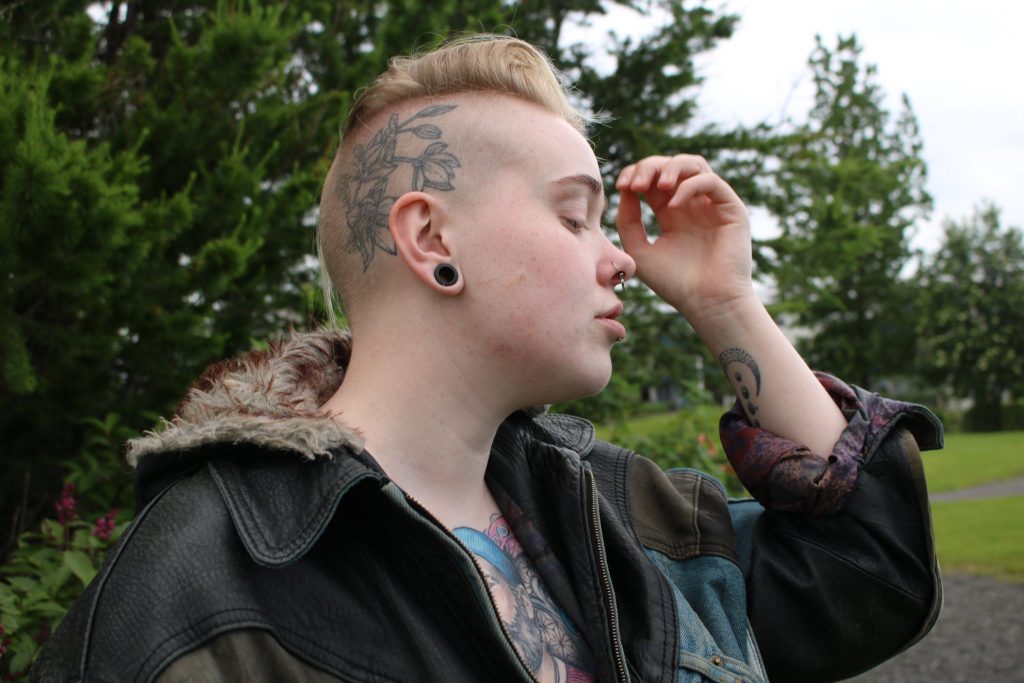 Where do you think these negative stereotypes come from?
Where do you think these negative stereotypes come from?
“I feel like I could go into depths about the evolution of gender roles and gender expectations, the status quo and the eco-system, but I have to be honest. The people who enforce these negative stereotypes are just people who hate women. They hate it when a woman is loud, when women assert dominance, when women stand up for themselves or forget to smile. It‘s classic sexism aimed towards queer women to justify whatever they feel threatened by.”
Do you think women are still expected to present as ‘traditionally feminine’ in Iceland, even if, or especially if, they are lesbians?
“It was not that long ago that women were expected to be feminine in the way they presented and the way they acted. With the internet, we are able to spread information and share ideas and ideologies worldwide and learn from one another like never before.
I am a part of a generation that grew up with access to a lot of influence and I am not limited to conform to certain standards just because of what I was exposed to. I think this applies to a lot of people my age and it‘s great.
I think women, especially lesbians, are rather immune to these traditional expectations. They are aware of the choice they have to present as either feminine or masculine or both or neither without feeling pressured to conform to any standards.”
Why do you think the younger generation of lesbians and queer women are moving away from the butch/femme scale?
“I think it‘s because those masculine and feminine standards are slowly dying out and young people aren‘t forced to conform to those standards.
It has to do with individualism and what is unique to the individual. I think it‘s great, but I personally don‘t think that it means they have to disappear entirely. Gender roles have a cultural history and significance and it‘s amazing to learn about.
Even though I see myself as a masculine woman I am still aware of all of my feminine traits. I am very sensitive and I cry a lot. But instead of allowing society‘s views of femininity to drag me down, I am very proud of it. Being sensitive and empathic means I have a way of dealing with my emotions and it feel makes me stronger.
I see queer men, women and non-binary people also celebrating femininity with being open about their emotions, putting on makeup, performing in drag, and protecting one another.
If we stop correlating masculine traits with men and feminine traits with women we are free to do anything.”
What would you say to other women holding back their butch identity?
“Embrace yourself. Truck dykes gotta stick together. We got you.”

